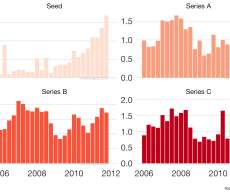Is the Lean Startup Dead?
Steve Blank
SEPTEMBER 5, 2018
Most entrepreneurs today don’t remember the Dot-Com bubble of 1995 or the Dot-Com crash that followed in 2000. Tech IPO prices exploded and subsequent trading prices rose to dizzying heights as the stock prices became disconnected from the traditional metrics of revenue and profits. It’s the antithesis of the Lean Startup.












Let's personalize your content